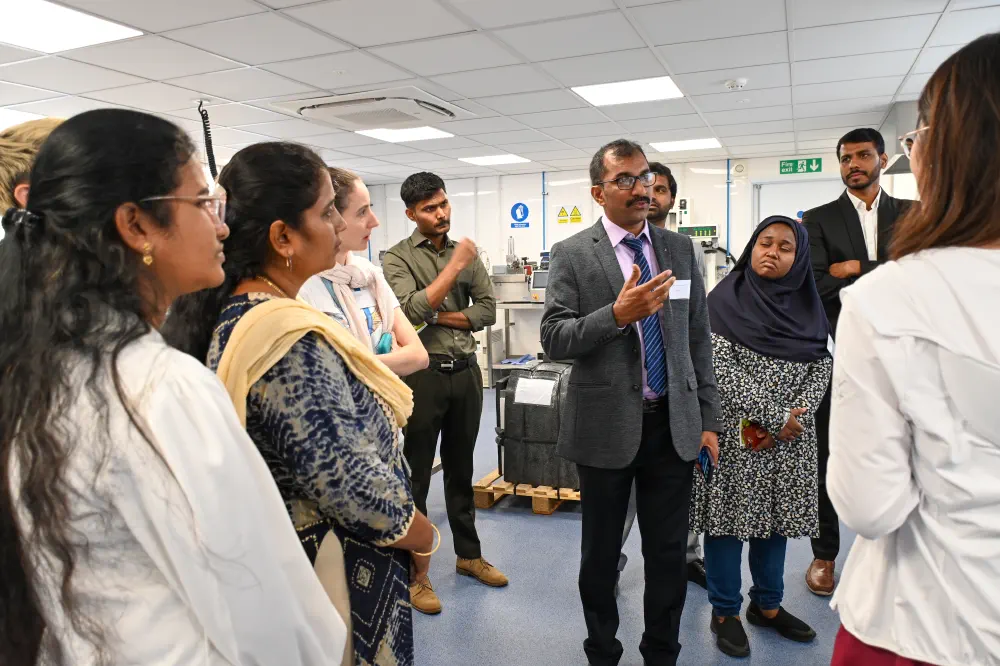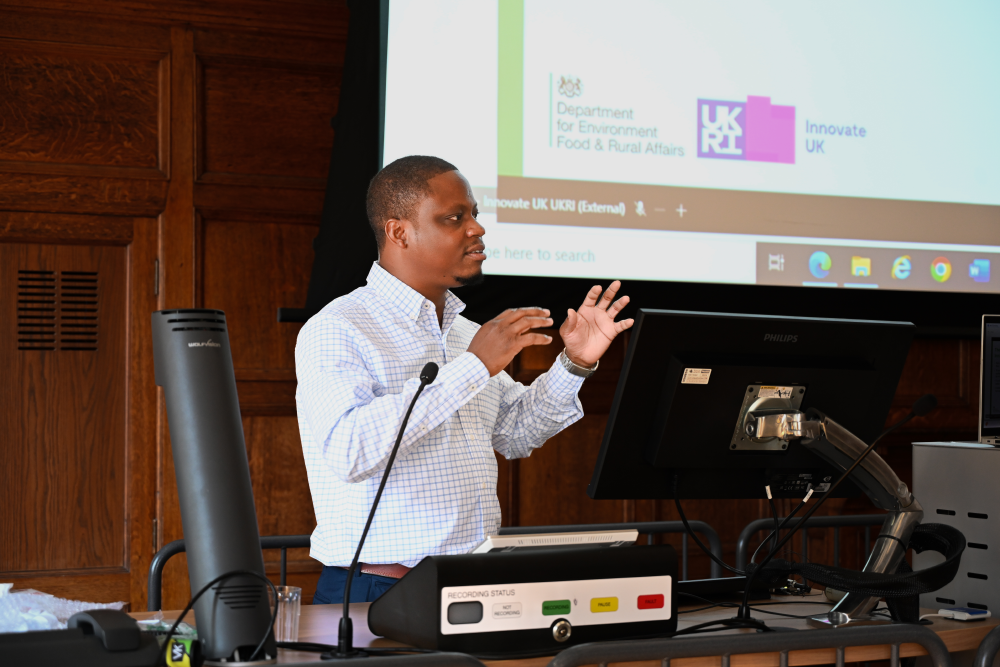
PhD students, Early Career Researchers (ECRs) and senior researchers from NRI and Karnataka, India came together last week for a networking event focused on advancing climate-resilient agriculture through international collaboration.
Held on 6 August 2025 at NRI’s campus in Medway, the event launched a new initiative: Empowering Early Career Researchers in Advancing Climate Resilient Agriculture Research and Collaboration. The project aims to build research capacity, foster equitable partnerships, and support the next generation of researchers in delivering impactful, community-informed science.
Opening the event, NRI Director Professor Sheryl Hendriks welcomed participants and reaffirmed the Institute’s deep commitment to cultivating interdisciplinary talent to address urgent global challenges across climate, agriculture and sustainability.
‘We know that the future of resilient agriculture rests in the hands of early-career researchers. This project is about empowering you to shape that future, together,’ Prof Hendriks said.
Building international bridges through innovation
A standout session featured Charlie Fraser, Partnership Manager for India at Innovate UK, who highlighted why India is a critical partner in building globally significant innovation. With a population of 1.46 billion and a median age of just 28, India offers not only a vast market and exceptional talent pool but also a fast-growing startup ecosystem and shared ambitions around climate resilience and sustainable growth.
‘India’s scale, talent, and shared ambition with the UK around climate and sustainability make it one of our most vital partners. By connecting researchers and innovators across borders, we can unlock solutions to global challenges together’, Ms Fraser said.

She outlined the strategic objectives behind UKRI’s India partnerships: positioning the UK as a preferred research and innovation collaborator, supporting business-led research and development, and delivering commercially viable solutions to global challenges, including sustainable agriculture. She also presented examples of active initiatives like the Urban Systems Global Incubator Programme and shared information on funding and matchmaking platforms to help ECRs engage with potential collaborators across sectors.
Adding to this, Paul Laniran, Innovation Lead at Innovate UK, showcased opportunities within the Farming Innovation Programme and encouraged ECRs to explore collaborations that span the innovation pipeline from research to industry.
Equitable research, inclusive futures
Also speaking at the event, Dr Katie Perry, Chief Executive of the Daphne Jackson Trust, gave an inspiring talk about supporting researchers returning from career breaks. She highlighted how structural barriers, often invisible, can limit the potential of talented individuals and how tailored support can help them thrive.
The Trust’s flagship research fellowships offer a route back into academia for those who’ve taken breaks due to caring responsibilities, health issues, or other life circumstances. Dr Perry emphasised the need to value career diversity and widen participation in research as key to ensuring excellence, resilience, and inclusion in the research ecosystem.
Throughout the programme, participants took part in structured networking, interactive discussions on participatory and community-based research, and a guided tour of NRI’s research facilities. The emphasis was on peer learning, collaboration, and building a shared research agenda that is grounded in both local realities and global relevance.
A recurring theme across sessions was the importance of equitable partnerships – research collaborations that are co-designed, inclusive, and aligned with community needs.
Looking ahead: deeper engagement in India
As the programme continues, participants will collaborate online and in-person to co-create solutions that support climate resilience in agriculture that reflect both scientific excellence and social relevance.
This event laid a strong foundation for the project’s next steps including a five-day immersive ECR workshop in India scheduled for January 2026. This workshop, to be held at Keladi Shivappa Nayaka University of Agricultural and Horticultural Sciences, Shivamogga, Karnataka, will feature field visits, practical training, and continued collaboration-building.
UK Project coordinator, NRI’s Dr Karna Hansson said: ‘This is a great opportunity to build new collaborations between NRI and South Indian agricultural universities. With participants from NRI and agricultural universities across South India, we hope that the connections created through these events will continue to grow beyond the end of this project.’

